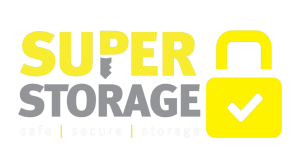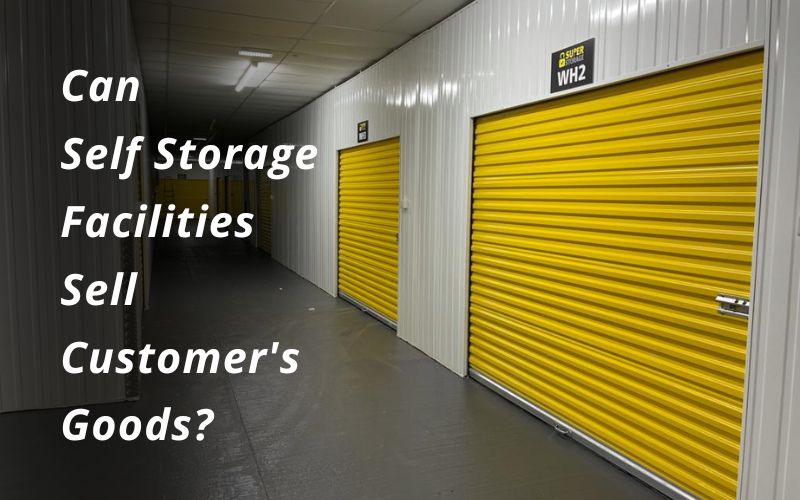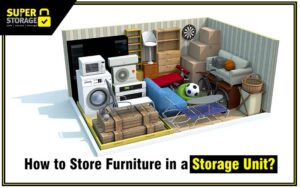Can self storage facilities sell customer’s goods? Yes, of course and no! Self storage facilities have specific regulations regarding the sale of customer goods. These can be found in the Texas Department of State Health Code, which deals with licensing regulations. A licensed commercial self storage facility is required to maintain records for the preceding five years for all items stored on the premises.
Checklist that a Storage Facility Owner Must Follow:
This checklist covers all of the legal requirements for storage facility owners who want to sell customer goods from storage units.
- Obtain personal property insurance on the goods
In order to minimize losses and liabilities, you must obtain personal property insurance on the goods to sell customer goods if he is not able to pay his rent of storage facility.
- Inform the affected customer of the sale by mail
Write a letter or email to the customer. Inform him that you are selling his property in order to pay his rent. Give him a copy of his agreement with you, as well as a copy of the sale contract. Ask him if he has any objections to the sale.
- Prepare a written notice describing the property, stating that it will be sold at a public auction and describing how to access more information.
A notice of intention to sell a property at a public auction must be published in a newspaper circulating in the area where the property is situated, and then by posting the notice on the property.
- Publish the notice in a local newspaper for three consecutive weeks prior to the sale.
A notice of sale or auction is a legal notice that must be published in a local newspaper for three consecutive weeks prior to the sale or auction of the property. The notice must include information about the date and time of the sale.
- Make reasonable effort to contact the customer after notice has been sent and before sale is scheduled, as well as immediately after sale (to confirm receipt of any remaining funds.)
The customer must be given a reasonable opportunity to pay his account before sale takes place. In case the customer fails to do so, it is imperative that you make reasonable effort to contact him and inform him about the action taken against him, including the date and time of sale.
If the customer fails to pay for the goods on time, it is your duty to notify him in writing about his default. If he does not respond within 14 days from the date on which he was first notified in writing, you may sell the goods at public auction.
Rules and Regulations to Auction the Customer’s Goods
Storage companies cannot simply sell customers’ belongings if they fail to make payments; they must follow strict guidelines regarding how uncollected goods are handled.
- If a customer fails to pay their bill, the storage facility can sell the contents of their locker.
If a customer fails to pay their bill, the storage facility can sell the contents of their locker. This is done through a process known as liquidation. This means that the contents of the locker are sold to another customer at a price determined by the storage facility.
- Storage companies are legally required to follow strict guidelines when it comes to disposing of customers’ property.
Storage companies are legally required to follow strict guidelines when it comes to disposing of customers’ property. For example, the company must have a written policy for how it handles customer belongings. This policy must include procedures for storing and disposing of items, as well as a description of the company’s responsibility for their safekeeping and security.
The policy should also include details about how long items will be kept in storage, whether they can be sold or donated, and what happens if there is an emergency or natural disaster. The policies should also explain how customers can request that their possessions be returned after being stored in storage space.
- Storage lockers are leased to customers on a month-to-month basis. Customers may pay in advance or postdate their checks.
Storage lockers are leased to customers on a month-to-month basis. Customers may pay in advance or postdate their checks.
Storage lockers have a fixed rate, so customers know what they are going to pay before they start paying it.
They are easy to find and access because they are clustered together, making it easy for customers to get in and out quickly.
- As part of the contract, customers agree that if they miss payments, the storage company can sell off their belongings to recover its fees.
The contract states that customers agree to pay for the storage space in advance before renting a unit and agree not to store or keep any items on site. The contract also states that customers must notify the company of any changes in their address or phone number and that they are responsible for all items placed in the storage unit.
The contract further states that if a customer fails to pay their bill within 30 days of receiving it, then the storage company has the right to sell off their belongings to recover its fees.
- In some cases, the company is required by law to advertise and auction off items before they are allowed to dispose of them.
In some cases, self-storage company is required by law to advertise and auction off items before they are allowed to dispose of them. This happens when the customer become company defaulter. In this case, the following steps will be taken by the company:
The customer will be notified that their account has been suspended for failing to pay for goods or services. The customer will be asked to pay the outstanding amount due within 14 days from the date of notification. If no payment is made within this period, the account will be closed permanently.
The customer can still use their goods or services during this period but if they do not pay, they will lose all access rights to those goods and services until they have paid all outstanding amounts due.
Check also: Top 15 Most Stored Items in Self Storage
Take Away:
If a customer defaults, the facility has the right to sell or auction off his or her goods to cover the outstanding costs. There are strict rules on how a company can deal with storing goods owned by customers. The storage business cannot sell any good without fulfilling proper notification requirements and in a customer’s case, without the consent of customer or authorization from the debt recovery court.




